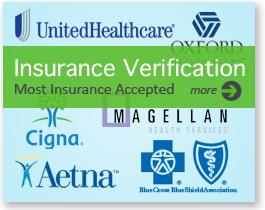
Medications Used in Methadone Addiction Treatment

Methadone, a synthetic opioid analgesic, has been used since 1964 to help heroin users recover from addiction. However, although methadone is relatively safe and non-sedating compared with heroin, this drug itself can be addictive when it’s taken incorrectly. If you take more than the recommended dose of methadone or combine this drug with substances like alcohol or heroin, you run the risk of a fatal overdose.
In addition to being used to treat heroin addiction, methadone is prescribed for the relief of chronic pain. But according to the National Center for Health Statistics, the growing use of this medication as a pain reliever has resulted in an increase in methadone addiction, overdose and death. In fact, between 1999 and 2006, the number of deaths related to methadone poisoning increased more quickly than the number of deaths related to cocaine or heroin. If you or someone close to you is abusing methadone, reaching out for help from a reliable rehab professional could help you avoid the life-threatening consequences of opioid addiction.
Drugs That Help With Methadone Addiction
Methadone is a powerful drug that affects the opioid receptors in your brain and spinal cord. When you take methadone, heroin or other morphine-based drugs, these receptors respond by triggering the release of chemicals that control your response to pain. They can also create feelings of relaxation, sedation and intense, euphoric pleasure, depending on how much of the drug you take and how you take it.
With repeated use, your body can become reliant on opiate drugs to experience sensations of comfort, pleasure or well-being. If you try to quit using the drug or cut down on the dose, you may go into a state of withdrawal, experiencing symptoms like muscle pain, sweats, goosebumps, nausea, insomnia and intense cravings for opiates.
Although methadone has consistently proven to be one of the most effective methods for treating opiate addiction, this drug itself can be addictive. Medications are often prescribed to help methadone addicts recover safely and effectively. The two most commonly prescribed medications for treating methadone addiction include:
- Buprenorphine. Sold under the brand names Suboxone and Subutex, buprenorphine is an opioid analgesic that has a lower potential for abuse than other narcotics. In 2002, the U.S. Food and Drug Administration approved the use of Suboxone and Subutex for opioid addiction treatment. Other forms of buprenorphine have not been approved for this use. According to the Substance Abuse and Mental Health Services Administration, the risk of chemical dependence, overdose and death is lower with buprenorphine than with methadone. Like methadone, buprenorphine can prevent opioid withdrawal symptoms and reduce the craving for opioids.
- Naltrexone. Along with buprenorphine and methadone, naltrexone is one of the three medications that are widely prescribed for opiate dependence. Naltrexone blocks the effects of opiates on the brain, preventing you from experiencing sedation or euphoria when you take a drug like methadone. Naltrexone can be taken orally in tablet form (brand name: ReVia) or through a monthly intramuscular injection (brand name: Vivitrol). Unlike buprenorphine, naltrexone does not reduce the craving for opioids. If you are taking naltrexone for methadone addiction, your treatment plan must include alternative methods for managing cravings.
Overcoming Methadone Dependence
When methadone is used as part of a medically supervised addiction recovery plan or a pain control program, it can be a highly effective, safe form of treatment. But improper use of this opioid drug can be dangerous, even fatal. If you’ve decided that it’s time to seek help for methadone addiction, it’s important to contact a professional treatment center. Quitting methadone on your own or suddenly reducing your dose may result in severe side effects and uncontrollable cravings for the drug.
Medications for methadone addiction are prescribed in conjunction with a comprehensive treatment plan. This plan may include a supervised drug taper, in which your dosage is gradually decreased over a period of time to reduce your withdrawal symptoms. Your treatment team will help you choose a prescription medication that’s right for your health condition, substance abuse history and medical background.
Along with medication management, you should receive psychosocial support for your recovery in the form of individual counseling and group therapy. Overcoming methadone addiction may be one of the greatest challenges you’ll ever face, but with help from qualified addiction specialists, you can recover successfully and build a brighter, healthier future. The professionals at Axis are ready to help you start this healing process when you call our confidential intake number.






